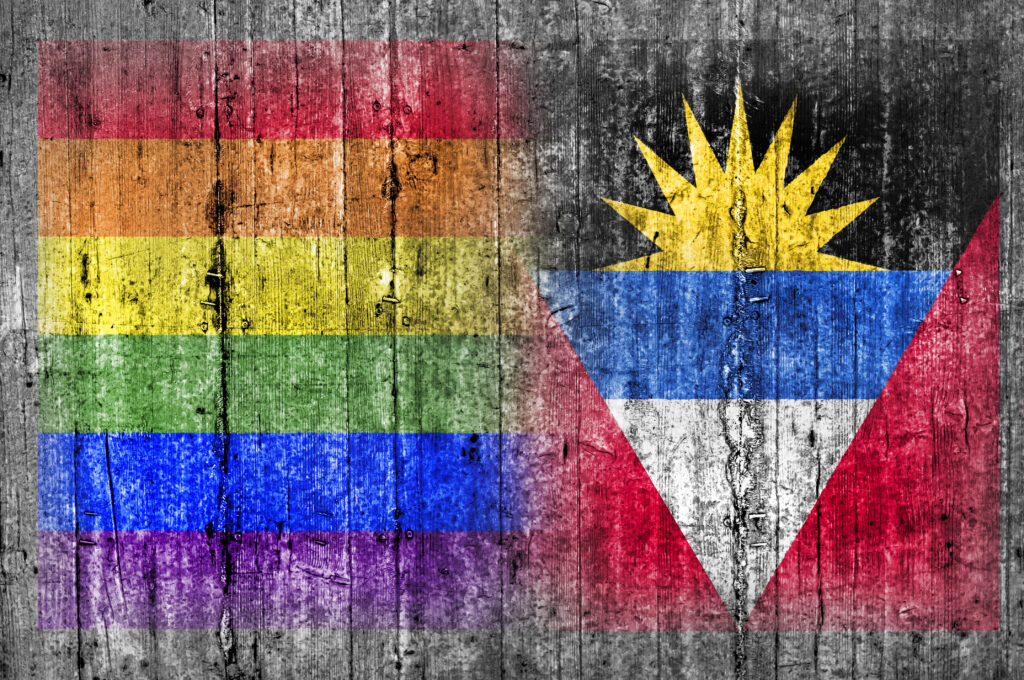Antigua and Barbuda: The Island Nation on the Brink of Queer Revolution
The Pride flag starts to feel like contraband as the customs officer begins to unzip and go through my bag. Homosexuality had only been decriminalized in the twin-island nation a few days prior, and I didn’t yet have a sense of local attitudes or how receptive people would be to the news. The officer pauses for a moment as she sees the flag and then gives me a knowing look. “You’re here to celebrate?” she says, and I nod. “Well in that case,” she smiles broadly. “Welcome to Antigua and Barbuda!”
It was exactly the welcome I’d hoped for. The Caribbean people are known for their warm and friendly charm, and despite their previously discriminative laws, my first impression of the people of Antigua was consistent with my expectations. A ‘live and let live’ attitude comes across as paramount and a way of life that’s integral to their culture.
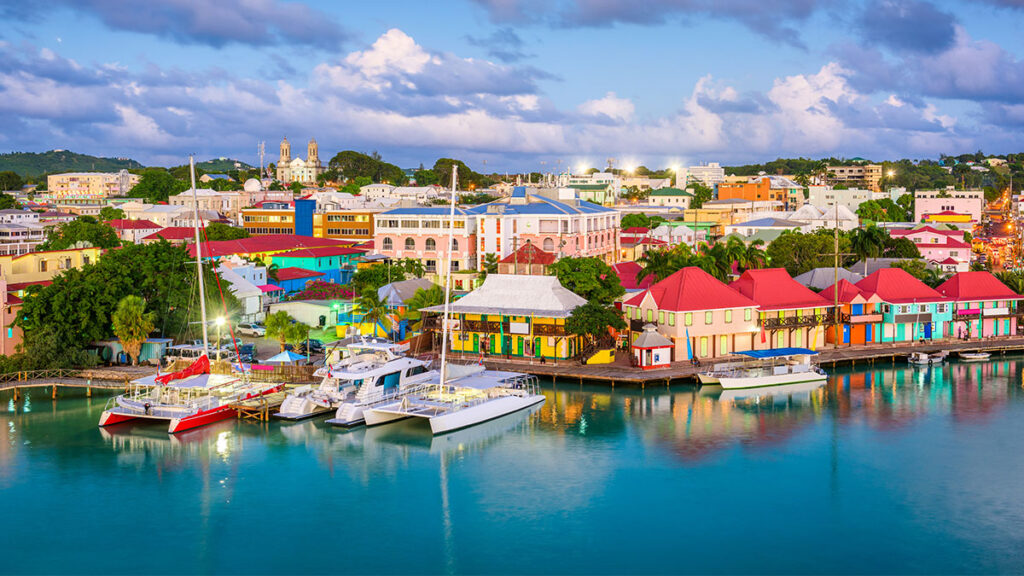
What I wanted to understand, though, was what this change in legislation would mean for the future of the country and its residents. Homosexual acts had previously carried a 15-year prison sentence, which meant that any LGBTQ+ culture had been forced underground. Would people now feel free to express themselves, or would the hangover of these colonial laws stick around for years to come?
My journey first takes me to Hermitage Bay – a luxury eco-lodge looking out over the tranquil turquoise waters on the west coast of Antigua. Many travel guides list it as the only LGBTQ+ inclusive space on the island, and when I’m greeted by Rachel Browne, the resort’s exuberant manager, I quickly begin to understand why. Born in the Caribbean and working at the resort since 2007, she explains that they’ve always championed an inclusive mindset, hiring LGBTQ+ staff, and welcoming all guests regardless of their gender or sexuality. When I ask if this was a business decision, she corrects me, and instead tells me that it’s because it was ‘the right thing to do.’
She does warn me that not everybody has the same view. Queer tourists are generally free to be themselves – this was very much my experience during my visit – but life may not be so simple for the LGBTQ+ people that actually live there.
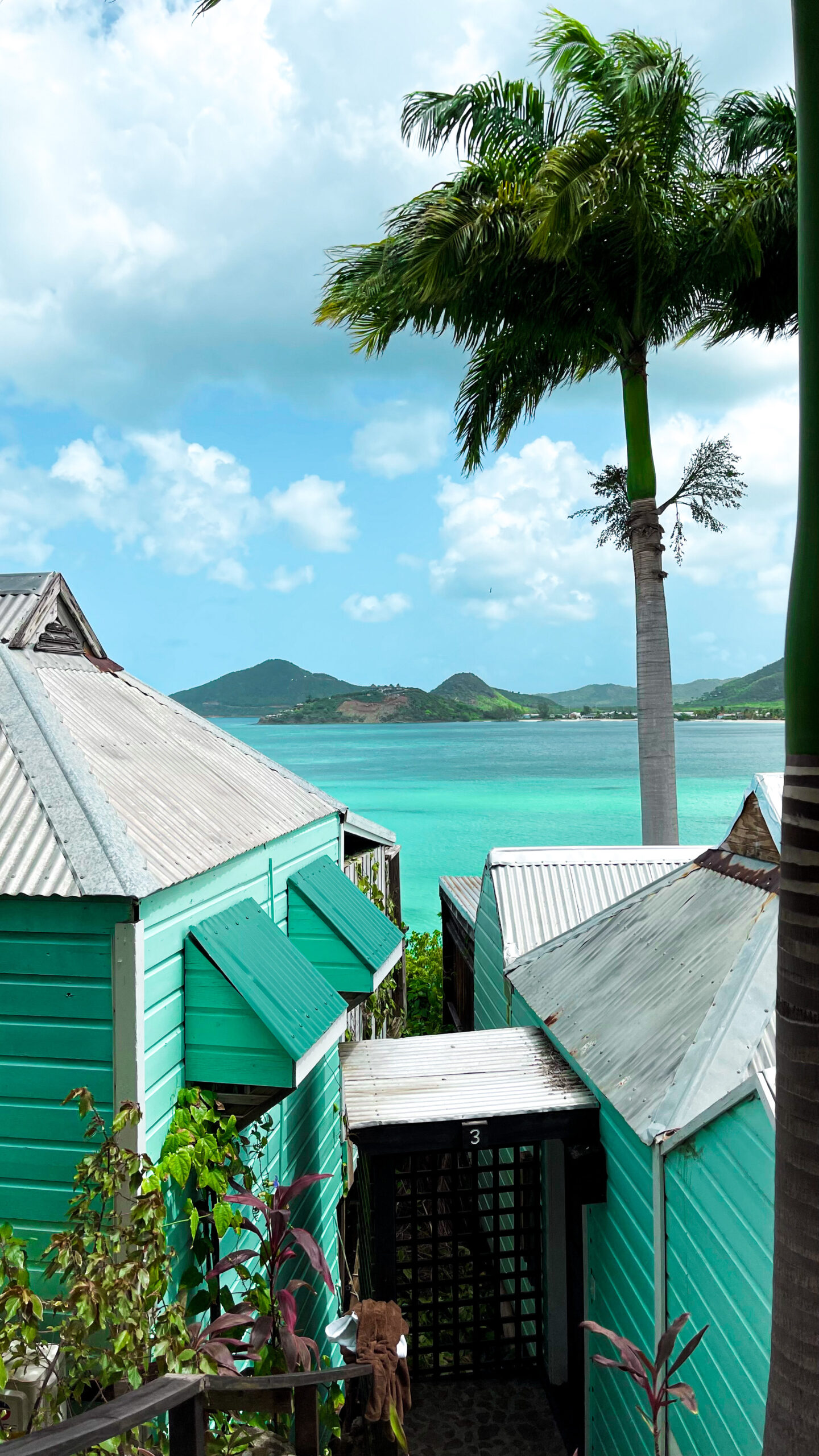
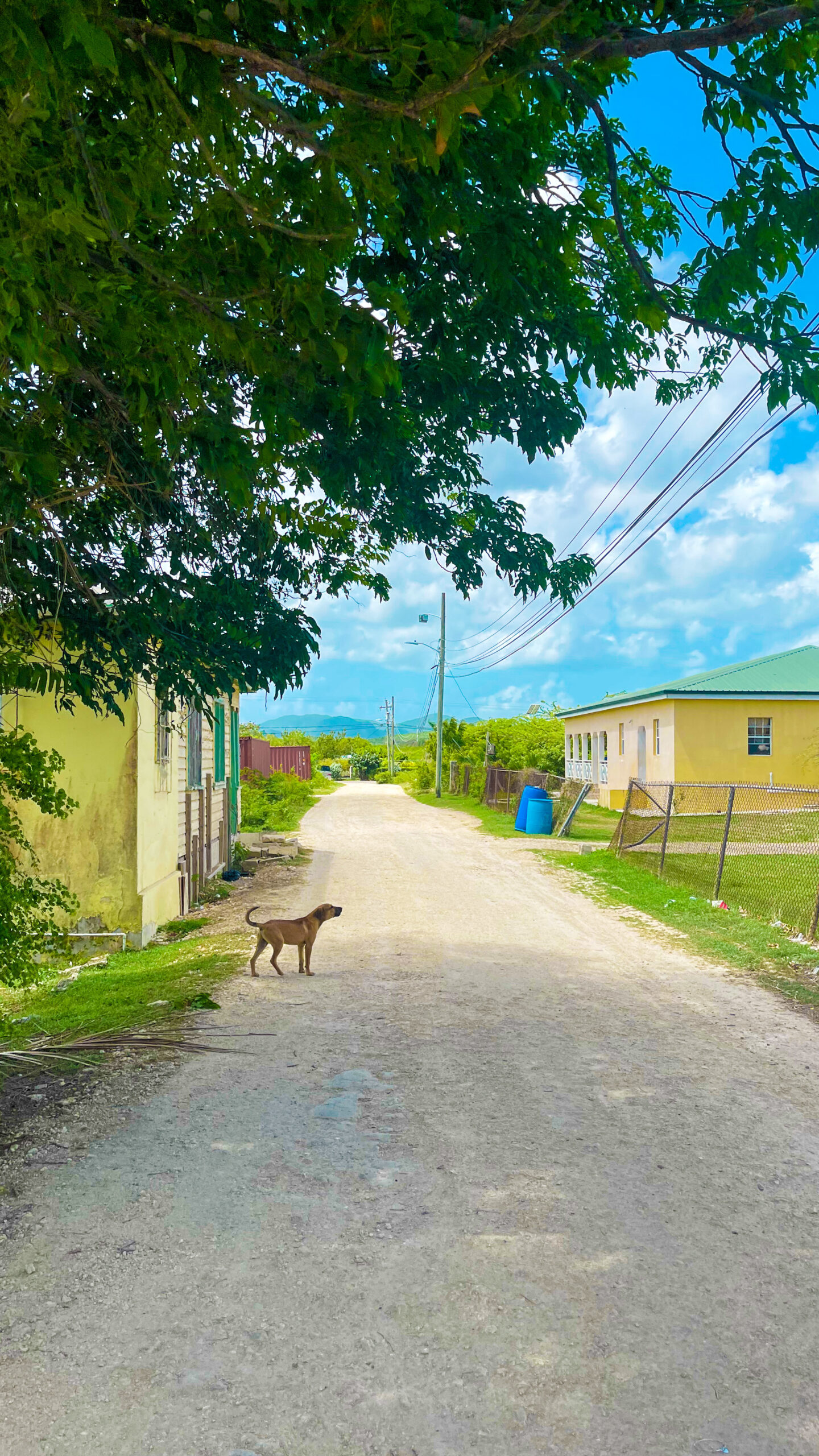
To get a sense of the ‘real’ country, away from the resorts, I head to Saint John’s, the capital city and island’s beating heart. I had perhaps naively hoped that I might find some visible queerness there – perhaps a rainbow flag flying in defiance or an underground LGBTQ+ hot-spot, but the search for even a glimpse of visibility returns nothing. Even turning to Grindr, I find I’m just met with a sea of faceless profiles. It seems there’s not a single person on the whole island that chooses to display their name, face or anything else that might otherwise reveal their queer identity.
What I do find, though, is a vibrant city full of so much color and warmth. There’s a buzz in the air as people prepare for Carnival, extravagantly camp outfits are displayed in the shop windows, and there’s a general sense of friendliness from every single person I encounter. It makes it difficult to believe that they could be in any way queerphobic, and so I set out to talk to some of the locals to gain a better understanding.
“This is beautiful,” I say, entering one of the stores and pointing to an elaborate costume decorated with hundreds of colorful feathers. It’s the kind of costume one might see at a Pride parade, and so I use that as a way to broach the subject delicately. The store owner eventually tells me that she doesn’t believe LGBTQ+ people should be persecuted or denied their rights, but she does believe it’s a ‘sin’ and that it’s ‘shameful.’
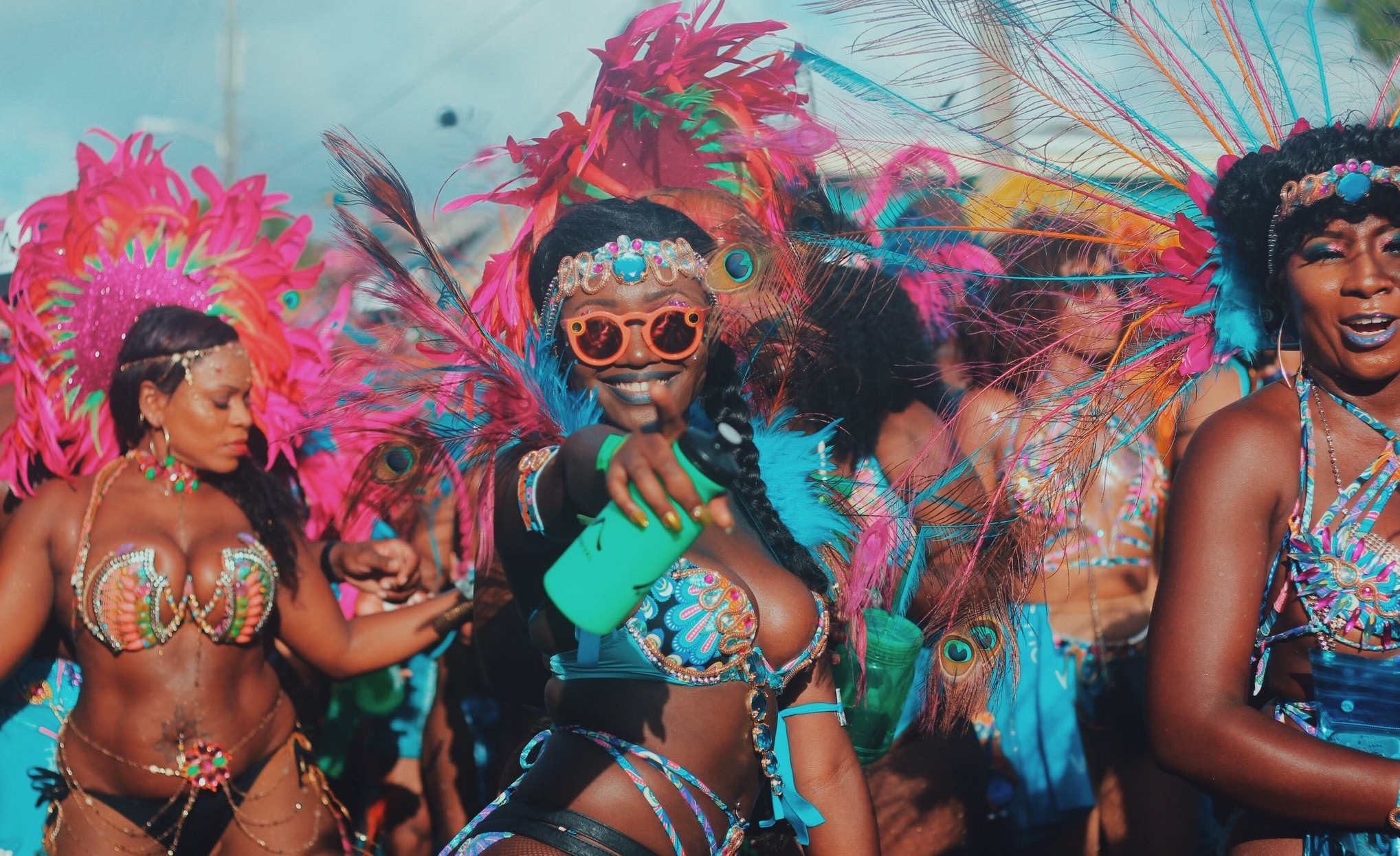
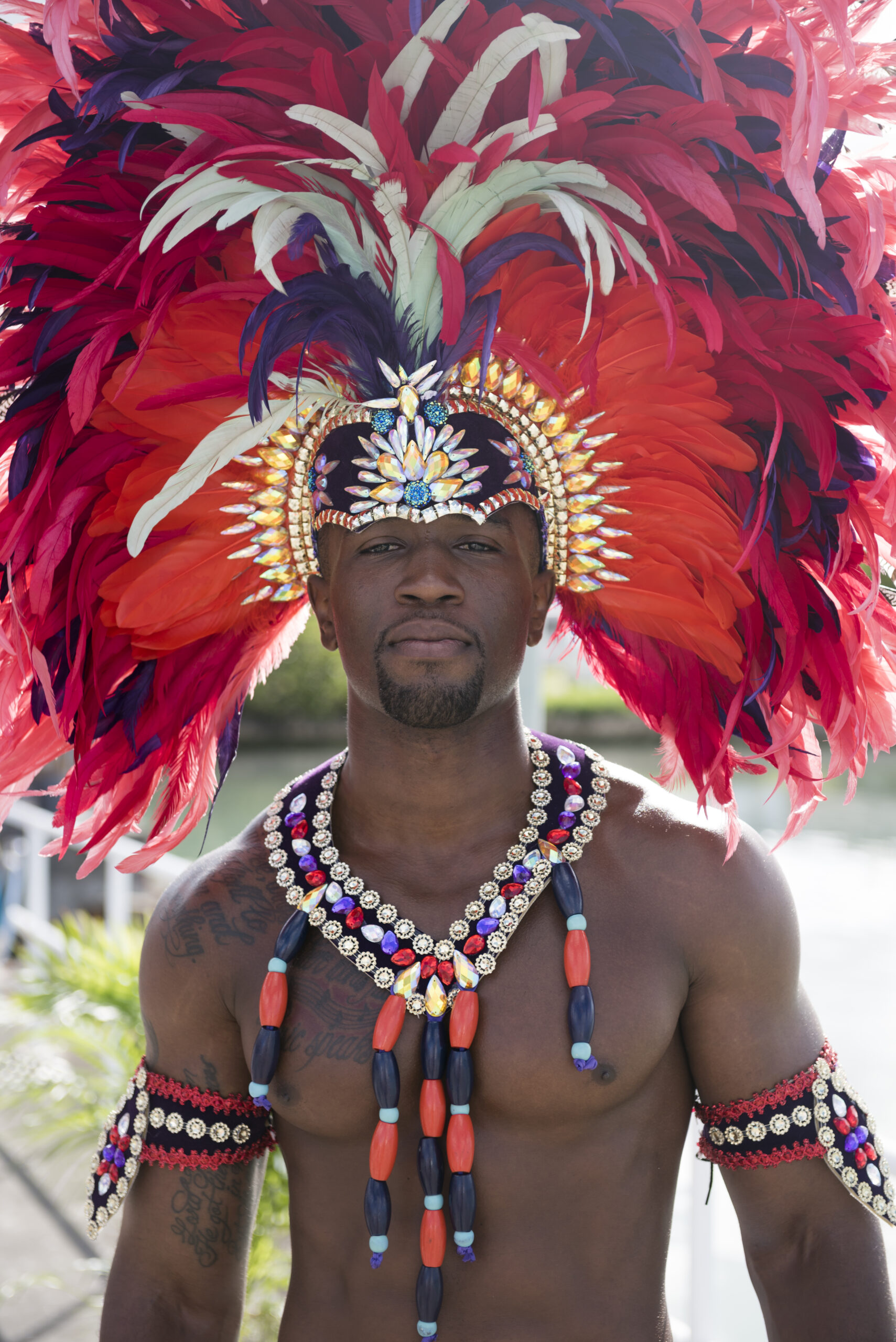
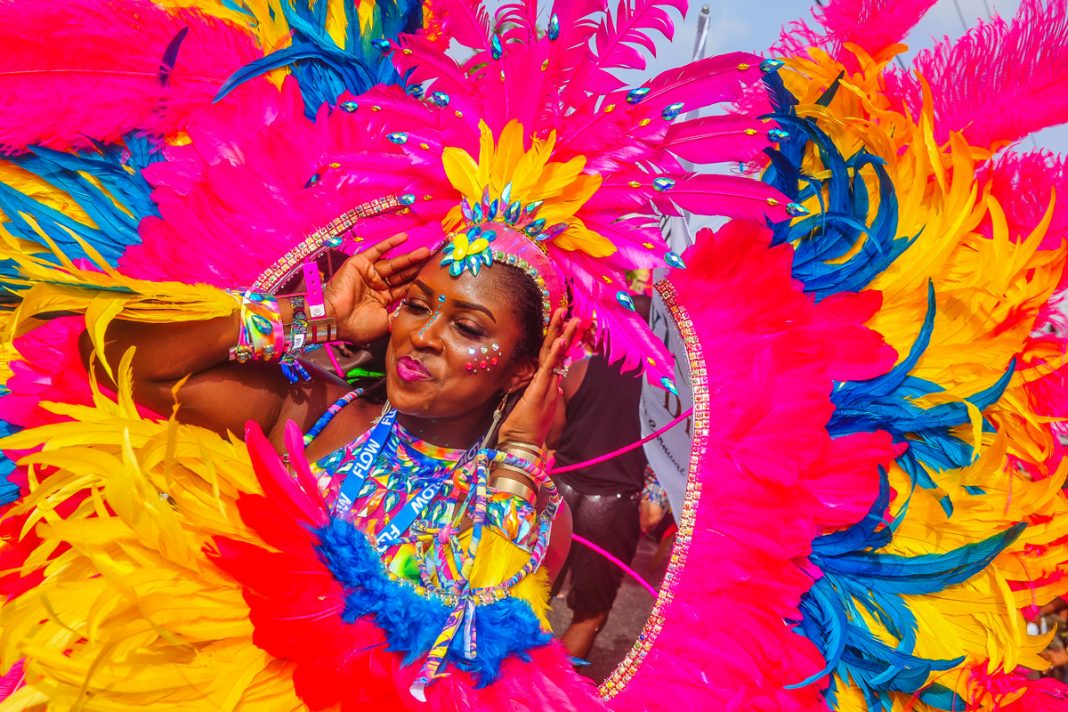
It feels so at odds with her otherwise kind and welcoming persona, but it gives me a little more insight into the weight religion has on the people of Antigua and Barbuda. The country is overwhelming Christian, but these discriminatory views run through other religions too. “It just goes against what we believe in,” I’m told by my 60-something Rastafarian taxi driver later that same day. “But it doesn’t mean we can’t respect each other,” he adds, offering me an ice-cold ‘Rude Boy’ from the cooler by his feet.
These views may be common, but they aren’t true of all religious people on the island. “Hey blonde,” one girl calls as I make my way through the colorful suburbs just outside of the city. “What are you doing all the way out here?” She’s selling a mix of local fare and stray chickens roam freely around her feet as she beckons me over. I buy some saltfish croquettes from her as we talk.
She tells me that she holds her faith very close to her heart but that she also believes everyone has the right to their own choices. She speaks of losing an LGBTQ+ friend, and how the only time she saw the queer community come together in public was at his funeral. “People shouldn’t have to feel afraid,” she tells me. “They shouldn’t have to feel they have to hide who they really are.”
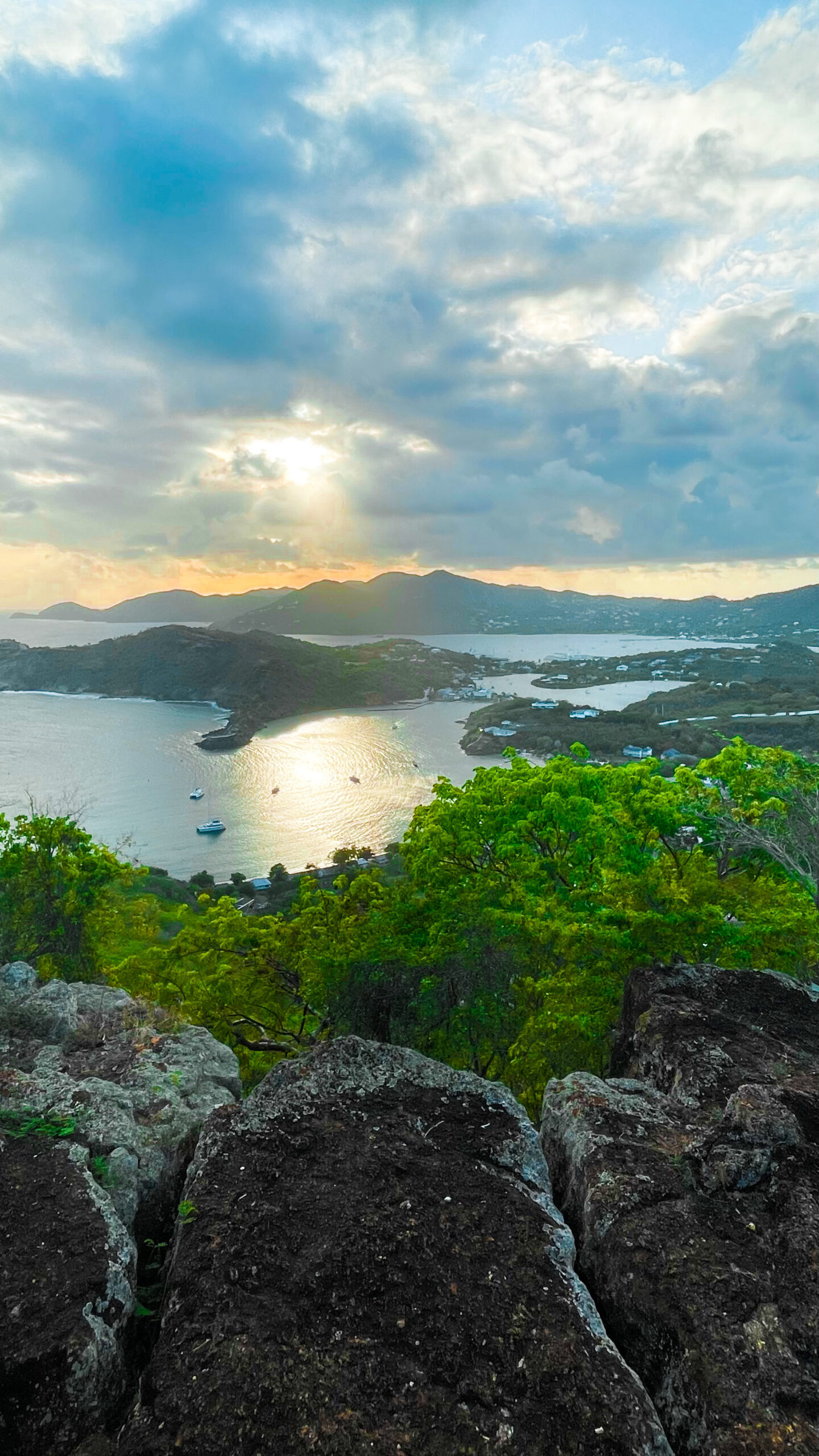
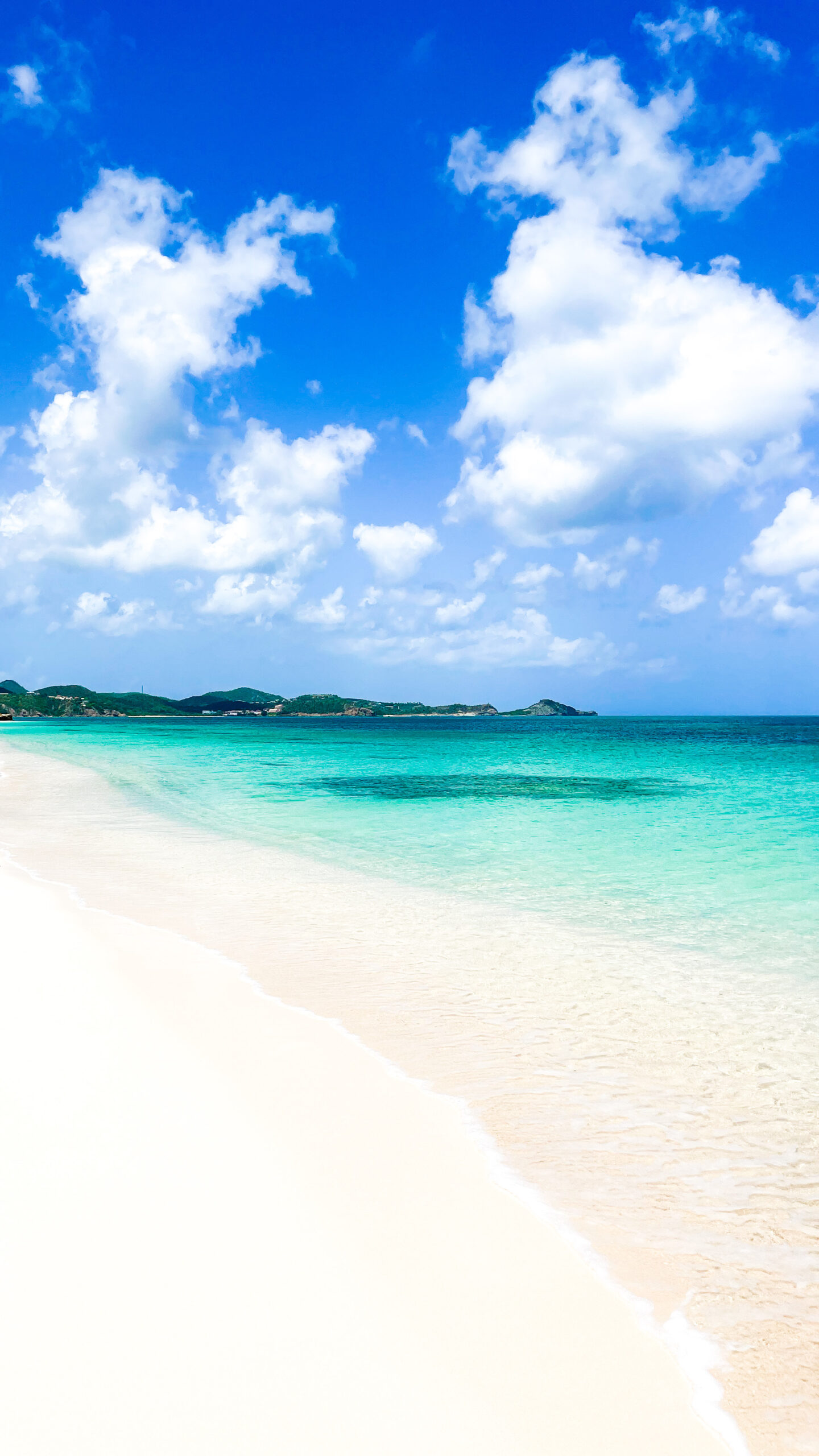
Eventually, she puts me in touch with an incredibly passionate young gay man who wishes to remain anonymous. He speaks enthusiastically about the need for change but also cautions that there is a need to tread lightly. He shares his concern that too much too fast could result in those that are against progress pushing back with force.
“It feels like we’re on the brink of queer revolution,” he explains. “But there are no laws here to protect LGBT+ people and so people could become violent. It’s gonna get real rough for gays before it gets easy.”
This sentiment is echoed by other LGBTQ+ Antiguans too. Orden David, the openly gay man who filed the original motion to decriminalize homosexuality, speaks about his experiences with harassment. After being the victim of a robbery, the police instead began questioning his sexuality, asking ‘why are you gay’ and why he would ‘choose this lifestyle.’ For that reason, it’s understandable that progress in the region is slow. People are understandably afraid, but more than that, there’s also a tremendous sense of hope. That’s the overwhelming feeling I get from the majority of people I speak to, and it very much feels like the country – and the Caribbean as a whole – is at a critical juncture.
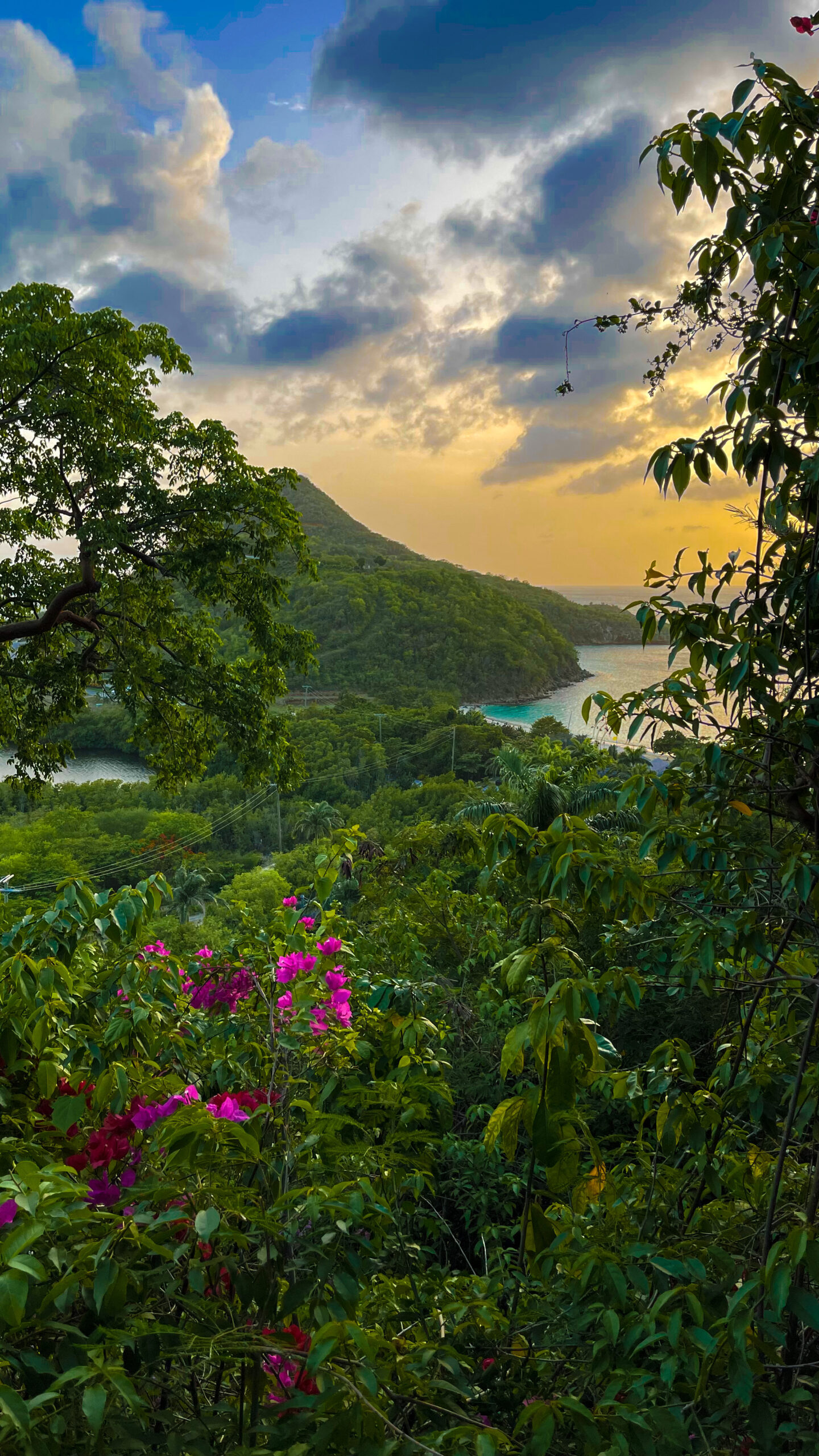
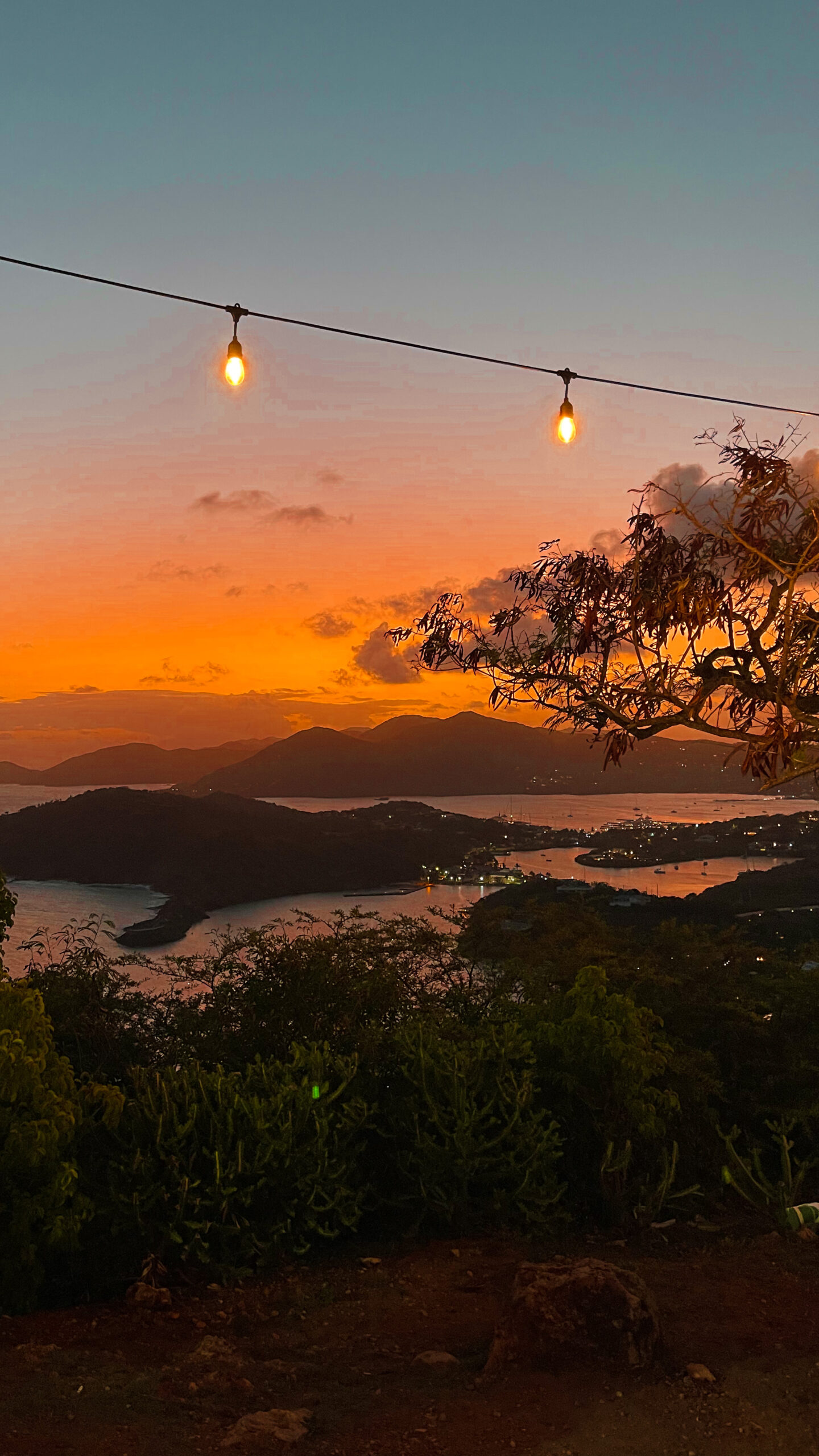
Last year, Virgin Atlantic funded a study that revealed that the discriminative legislation could cost the region up to $4.2 billion in annual revenue, and for a region that so heavily relies on tourism, it’s impossible to ignore. With this and the mounting pressure from LGBTQ+ activists and people like Mia Mottley – Barbados’ incredibly outspoken prime minister – it feels like change is coming. It’s just a matter of time.
There’s often the temptation to boycott countries that are slow to adopt progressive views, but with Antigua and Barbuda ruling their outdated laws unconstitutional, I think we should instead do just the opposite. Let’s use our tourist dollars to show that there’s a need and a demand for countries that are accepting of LGBTQ+ people. Despite everything, the people of Antigua and Barbuda are some of the most warm-hearted people I’ve ever met, and so many of them want change. So, let’s support them in the progress they’ve made and the progress that’s yet to come, and let’s hope that other countries around the world will see this and follow suit.

